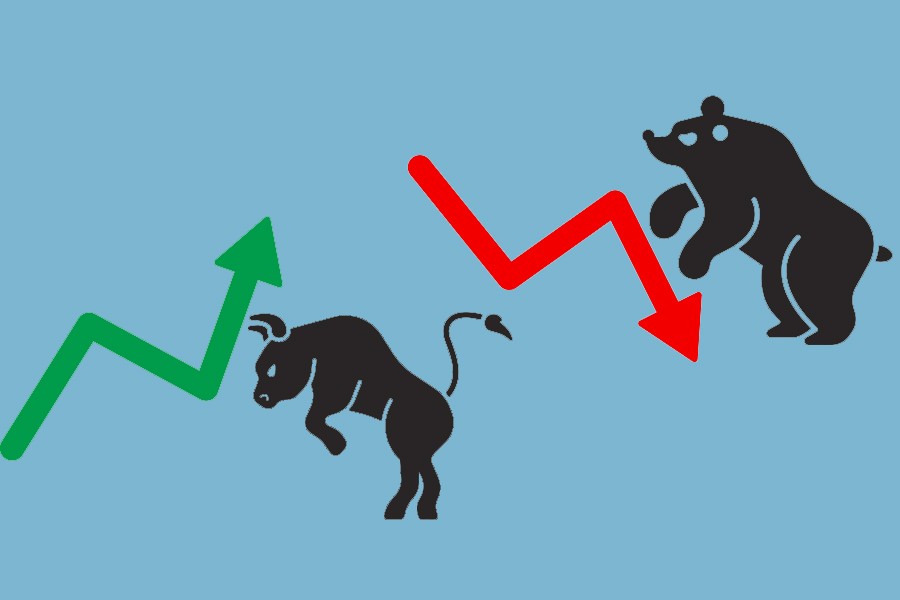From the first week of April, Dhaka Stock Exchange (DSE) has been in the headlines of local dailies as its major index (DSEX) continued to decline. According to the dailies, Dhaka Stock Exchange Brokers' Association (DBA) considered lack of confidence to be the reason behind the market slump. Some frustrated small investors took to the street to protest. But the finance minister AHM Mustafa Kamal said, "The stock market is fine. It is normal for the market to have fluctuations."
The present slump as also the previous ones makes one ask the question: "Is controlled manipulation possible in the stock market?" A former chairman of the stock market regulator Bangladesh Securities and Exchange Commission (BSEC), Faruque Ahmed Siddique, felt that the recent slump at the DSE was caused by manipulation in order to gain control.
The technique of market manipulation in Bangladesh is quite interesting. Manipulators spread news that encourages common investors to buy shares in the up market (index is trending high). In the meantime, manipulators sell their shares and become inactive. Common investors lose their confidence when they become aware that the big investors are trading in the opposite direction. At this point, common investors start panicking and sell their shares aggravating the slump.
On the other hand, when the market is down, manipulators start buying shares at cheap prices. This leads us to the question: why can big investors easily mislead small and medium investors at the stock market in Bangladesh?
The debate on whether the market is manipulated or not, whether there is any conspiracy (theory) or not, is beyond the scope of this article. Academics like to study about the ways through which market manipulation, or 'fluctuations' as the finance minister calls them, can be overcome.
Although fluctuation (volatility in academic term) is a common phenomenon in the stock market, big slumps are never normal. DSEX was experiencing a downturn since the third week of January which touched the lowest point on April 29 (see Figure 1). When market experiences big slumps, investors protest on the street, newspapers look for analysts' views and government provides schemes/support to boost common investors' confidence.
In the wake of recent slumps, on May 02, the government decided to sanction Tk 8.56 billion to small stock investors through the Investment Corporation of Bangladesh (ICB). While this intervention can boost the confidence of common investors, this is not a permanent solution. The sanctioned money can be easily wiped out by manipulators. They will repeat the same technique of spreading fake news, resort to fear-mongering, and boost investors' confidence in the wrong direction.
The consequence of this scenario or repetition of current slumps can easily wipe out the funds sanctioned by the government.
Rather, long-term policy intervention is necessary to stabilise the market. One of the policies that can be easily applied is access to information. Have you ever wondered why big investors can easily mislead investors or manipulate the market? The answer is simple: manipulators are normally big investors who are very well-informed. Hence, they can easily mislead common investors.
Normally in weak markets like the DSE, common investors cannot access information and lack proper knowledge about the valuation of stocks. Investors in such markets exhibit herding behaviour (the behaviour that represents the tendency for an individual to mimic the actions of a larger group), and more or less depend on news or peer suggestions for their buy and sell signal rather than their valuation of stocks with fundamental information (e.g. revenues, expenses and income, growth prospects etc).
Speaking of access to information, I must write about my recent experience. I went to Bangladesh in January of this year to attend a conference at the University of Dhaka and explore the possibilities of research on the Dhaka Stock Market.
I noticed DSE website does not have historical information of companies beyond four to five years. Most of the given data are also missing. I went to a couple of organisations, including the Dhaka Stock Exchange (DSE) to collect data. I was surprised that DSE library demanded Tk. 2.6 million for historic data of fundamental information of the listed companies. Another organisation demanded US $10,000 for only 10 years of data.
These data are supposed to be free-of-cost for listed companies of DSE. But there are several barriers to access these data. Common investors do not have the capital to access this data. So, how can they take informed decisions about buying or selling stocks?
Access to information is a fundamental aspect of stock market efficiency. When traders are informed, literate about the valuation of stocks, have free access to public information, manipulators cannot fool them with rumours and fear-mongering.
The government should focus on these issues and take necessary steps to digitalise DSE library and provide free access to the investors. Together with access to information, investors also need proper training and knowledge of different trading techniques to take informed decisions. Academics should also come forward and share their research and knowledge with common investors.
Dr Golam Sarwar (Sohan) is a lecturer of Finance at the University of Greenwich, London.


